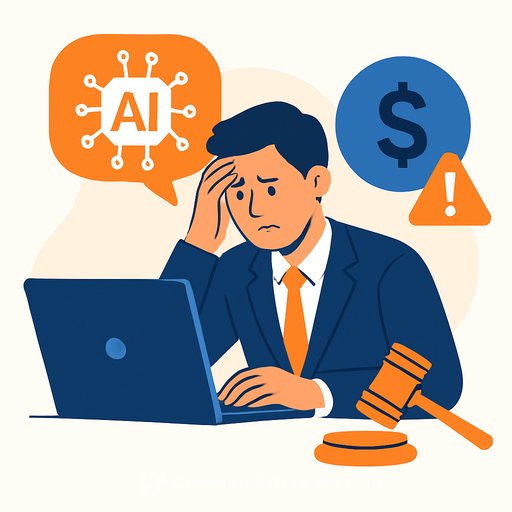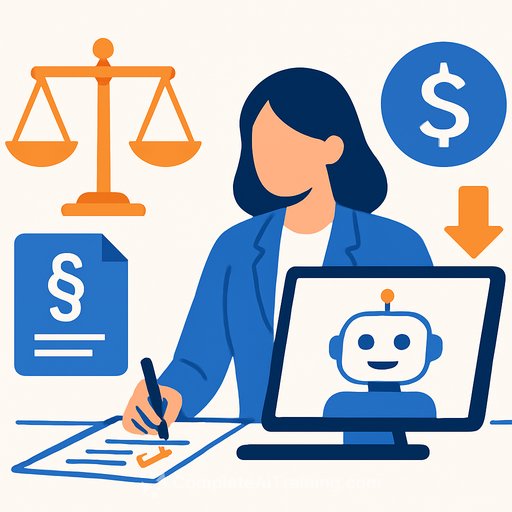AI is accelerating IP infringement. Legal leaders are on alert
Research commissioned by CSC finds a clear trend: nine in 10 legal professionals are concerned about online IP infringements. 85% report more incidents in the last 12 months, and 90% expect that number to climb again this year.
The most common issues: counterfeiting, trademark abuse, and brand impersonation. 88% say AI-enabled systems are fuelling the rise, and 93% worry that AI-generated fake assets-logos, images, and content-could materially harm their business.
Ihab Shraim, chief technology officer in CSC's digital brand services division, put it plainly: "With how much commerce and communication takes place online, a brand's reputation is built on its online presence and guarding it is a responsibility companies should take seriously."
Fake domains are the first move
The report highlights fake domain names as the launchpad for large-scale infringement campaigns. 76% say their organizations have a domain management strategy, but only 16% say legal has total visibility into portfolio management-a blind spot that invites fraud.
Shraim added: "There's a massive influx of sophisticated threat vectors targeting corporations, and the easiest targets are domain names and IP. In the past, fraudsters would send hundreds of thousands of phishing emails hoping that 2% or 3% would respond. Today, fraudulent activity is more targeted and comes with a much higher rate of success, particularly as AI quickly becomes a major accelerant."
Budgets are moving. Monitoring is scaling
To counter the trend, 67% expect significant increases in brand protection and IP enforcement budgets over the next three years. 56% are outsourcing monitoring to track infringement at scale.
Ian McConnel, chief legal officer at CSC, said: "Reactive defences are no longer enough. Fraudsters exploit low-cost, fast-moving tools to impersonate brands at scale. As AI adoption expands the avenues for infringement, companies that adopt proactive, multi-layered protection-integrating legal, IT and security teams, and partnering with trusted corporate registrars-will be best positioned to safeguard brand reputation in the AI era."
Action checklist for in-house legal
- Establish a cross-functional IP risk council (legal, IT, security, marketing) with clear ownership, escalation paths, and quarterly reviews.
- Centralize domain portfolio oversight. Require legal visibility, periodic audits, and uniform controls across business units and geographies.
- Expand defensive registrations in core TLDs and high-risk ccTLDs; use domain blocking programs where available.
- Stand up always-on monitoring for domains, marketplaces, social platforms, and app stores; implement phishing and brand impersonation detection.
- Codify a rapid takedown playbook with SLAs-UDRP/URS, DMCA notices, and platform reporting. Pre-approve templates and counsel spend thresholds.
- Harden payment and vendor change controls to counter lookalike domain scams; require two-step validation.
- Protect digital assets (logos, product images, marketing content) with version control, watermarking, and authenticity verification.
- Set measurable KPIs: time-to-detection, time-to-takedown, exposure window, repeat offender rate, and loss avoided.
- Rationalize vendors. Consolidate with an accredited corporate registrar; run annual security and process audits.
- Train internal teams on current impersonation patterns and AI-generated fakes; refresh quarterly with real incident examples.
Governance and visibility win
Only 16% of legal teams report full visibility into domain portfolio management. That's fixable-and it matters. If you can't see the asset, you can't secure it or act quickly when it's abused.
Build a single source of truth for domains, marks, takedowns, and disputes. Tie dashboards to KPIs, and review performance with executive sponsors to keep budgets aligned with risk.
Context: AI-related disputes are rising elsewhere
The trend isn't isolated to brand protection. Recent analyses point to a rise in AI-related filings in securities class actions and growing concern among in-house counsel about cyber and AI disputes. Expect more scrutiny on disclosures, controls, and response times.
Skill up your team
If your legal function is building AI fluency for IP protection and incident response, explore practical training paths for counsel and ops teams.
Explore AI courses by job role
Your membership also unlocks:






